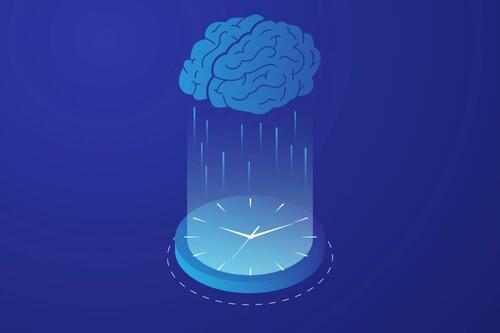Authored by Huey Freeman via The Epoch Times (emphasis ours),
New research shows that our daily exercise and sleep habits can affect brain function for up to two weeks.
Our brains do not react to things in quick, isolated surges; instead, brain activity evolves over more extended periods.

“This suggests that even a workout or a restless night from last week could still affect your brain—and therefore your attention, cognition and memory—well into next week,” according to the study’s press release.
Physical activity, sleep patterns, heart rate changes, and even subtle mood shifts can imprint on our neural networks for up to two weeks. This revelation challenges conventional wisdom about brain function and opens new avenues for understanding cognition, memory, and mental health treatment.
Ana Triana, a doctoral candidate at Aalto University in Espoo, Finland, performed double duty as the study subject, tracking her own activities while serving as the research team leader. Brain scans, smartphones, and wearable devices recorded her daily life and brain activities.
This experiment was designed to challenge the conventional wisdom that “just a few trials are sufficient for correctly sampling an individual’s brain activity and behavior,” the researchers wrote in their study, published Tuesday in the Public Library of Science (P
Triana emphasized the importance of continuous monitoring through wearable technology, noting that traditional brain scans, conducted while a person rests for 30 minutes twice weekly, offer limited insights.
“We wanted to go beyond isolated events,” Triana said in the press release.
“Our behaviour and mental states are constantly shaped by our environment and experiences. Yet, we know little about the response of brain ... on different timescales, from days to months.”
The researchers hope their unique study will help improve mental health treatment, focusing on individual information on the brain and a person’s daily life.
“Our approach gives context to neuroscience and delivers very fine detail to our understanding of the brain,” Dr. Nick Hayward, a physician, a neuroscientist, and study co-author, said in the press release. He added that information from daily life should be examined in a lab “to see the full picture of how our habits shape the brain.”
Read the rest here...